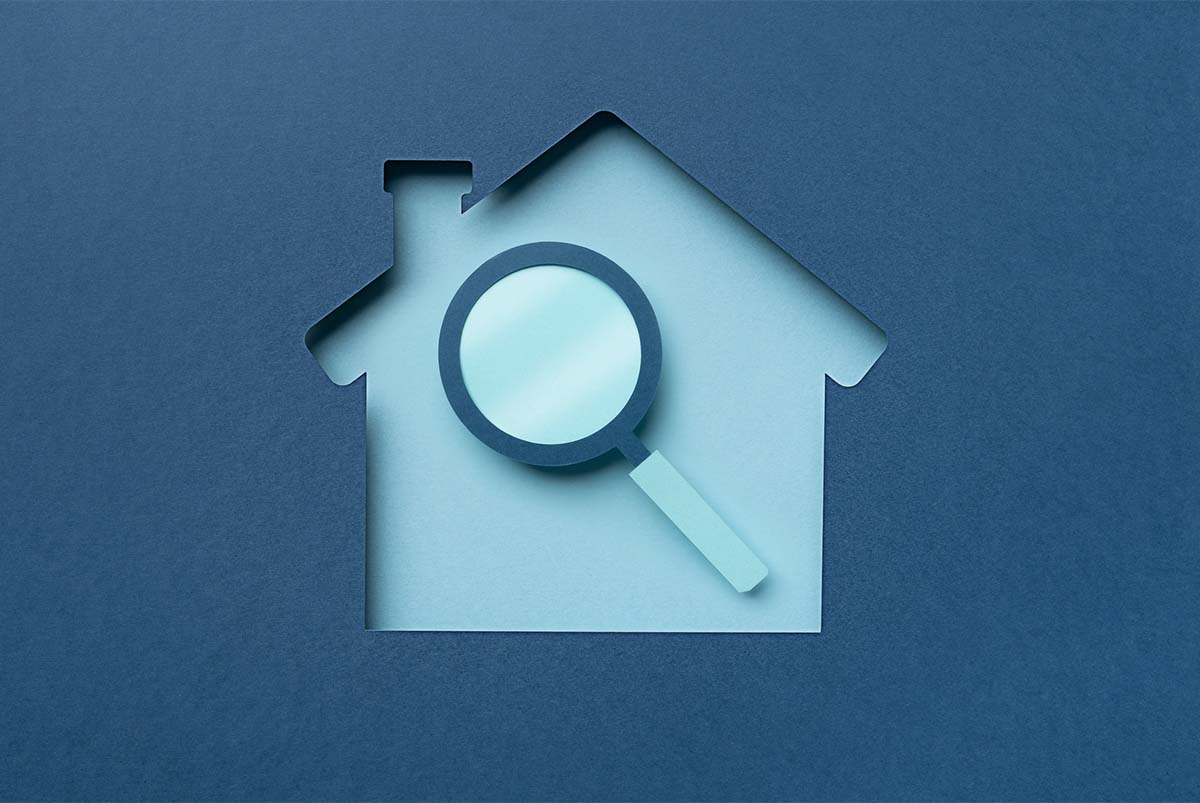Ready To Buy a Home?
Get Approved to Buy a Home
Rocket Mortgage® lets you get to house hunting sooner.
The Federal Housing Administration (FHA) is tasked with insuring home mortgage loans and making homeownership safer and more accessible while reducing risks for lenders. The FHA’s promise to repay a loan if the borrower defaults provides lenders with a sense of financial security, encouraging them to issue home loans with lower down payments and longer repayment periods.
Of course, the government won’t just insure any property. Every property purchased with an FHA loan must go through an appraisal and meet FHA appraisal guidelines. While FHA appraisals share some similarities to traditional home appraisals, FHA appraisals tend to be more rigorous and include additional requirements.
If you’re applying for an FHA loan or considering it as a way to finance your home purchase, we’ll explain everything you need to know about FHA appraisals and what you can expect from one.
What Is an FHA Appraisal?
Explore Your Mortgage Options
What are you looking to do?
The purpose of an FHA appraisal is to estimate the home’s value and ensure it meets the FHA’s health and safety requirements. During an FHA appraisal, the appraiser will:
- Estimate the market value of the home
- Evaluate the physical condition of the property
- Check for health and safety hazards
- Analyze the local market, including recent sales of comparable homes
- Asses the livability of the home
In addition to evaluating the quality of the house itself, the FHA appraiser also estimates the property’s fair market value, the price a reasonable buyer and seller would agree to under ordinary circumstances.
While there might be buyers willing to pay more for a property or sellers willing to part with their homes for less, the fair market value is an objective way of evaluating a property’s worth to average buyers and sellers collectively.
How Do FHA Appraisals Work?
The actual FHA appraisal might look a lot like a home inspection. The appraiser will take the time to evaluate the property and the interior and exterior of the home itself. During the appraisal process, the appraiser will document the home’s condition by taking pictures and notes.
FHA appraisals go above and beyond typical home inspections, looking not only at the home but also at the location surrounding the property and the land the property sits on. This includes potential hazards and nuisances, like a nearby chemical plant or airport that could impact quality of life.
Also, only an FHA-approved appraiser can perform an FHA appraisal. You can search for approved FHA appraisers on the Department of Housing and Urban Development (HUD) website.
What Are the FHA’s Appraisal Requirements?
In addition to basic facts about the house (like the year built, square footage and the number of bedrooms and bathrooms) present in all appraisals, FHA appraisals are subject to certain requirements. If a property fails to meet these requirements, the FHA may not insure the loan.
FHA loans must comply with all the HUD minimum property standards. These standards focus on the safety, security and soundness of the home. The FHA Single Family Housing Policy Handbook offers an exhaustive list and explanation of all the rules and requirements for FHA loans. All properties being financed with an FHA loan must:[2]
- Have an undamaged exterior, foundation and roof
- Have safe and reasonable property access
- Not contain loose wiring and exposed electrical systems
- Be free from damaged underground storage tanks and soil contaminants
- Have a working, permanent heating system that can heat the property adequately
- Have surfaces free of chipping or peeling lead-based paint
- Have adequate access to attic spaces and natural ventilation in crawl spaces
- Have access to clean water
- Be free from infestations of wood-destroying organisms (like termites)
- Have working utilities
- Be free from interior and exterior health and safety hazards (like steep staircases or stairs without handrails)
- Have a marketable title (meaning there is no cloud on title that could prevent the transfer of the property)
FHA appraisers use the Uniform Residential Appraisal Report for documenting their inspection findings and sharing the results of an appraisal with you and your mortgage lender. Supported by a standardized analysis of the home, this form helps appraisers estimate the property’s market value.
What are the reasons a home might not pass an FHA inspection?
Some common reasons for failing an FHA appraisal include a severely damaged foundation, roof leaks and problems with plumbing, electrical or heating systems. These issues can interfere with everyday living and pose an immediate threat to human health. They’re also common issues in homes because they require continuous upkeep and are used on a daily basis.
While problems that fail an FHA appraisal usually present a clear health and safety risk, there are times when the threat isn’t obvious or fixable. For example, if the property is too close to high-voltage power lines or is located within 300 feet of any 1,000+ gallon storage tank containing flammable materials it may be automatically ineligible for FHA financing.[2]
How Long Do FHA Appraisals Take?
The amount of time it takes to conduct an FHA appraisal can vary depending on the property. An FHA appraiser might only spend 45 minutes evaluating a one-bedroom condo, but you can expect a 3,000-square-foot home on half an acre of land to take several hours. Once the site appraisal is complete, it may take several days or more to receive the full appraisal report.
FHA appraisals are usually ordered after you and the seller come to an agreement and sign all the paperwork. An FHA appraisal is valid for 120 days (about 4 months). If necessary, your lender may be able to get you a 30-day extension.[3] However, in most cases, FHA loans close in far less than 120 days.
How Much Do FHA Appraisals Cost?
If you’re buying the home, you’ll usually be responsible for the cost of the FHA appraisal, and your lender will be selecting the appraiser.
The cost of an appraisal will vary by the size of the home, the number of available appraisers and how far the appraiser has to travel to get to the home.
For example, a 5-bedroom home is going to be more difficult to appraise than a 2-bedroom cottage. Loan type also matters. Depending on all these factors, it’s not unusual for an appraisal to cost as little as $600 or as much as $2,000.
What Happens After an FHA Appraisal?
Once the results of an FHA appraisal are in, you’ll know whether your loan is moving forward, or if you have to take some corrective action before you can close on the home. FHA appraisals can be made “as is,” “subject to completion per plans and specifications,” “subject to the following repairs or alterations” or “subject to the following required inspection.”[4]
If the appraisal uncovers problems
If the FHA appraisal uncovers problems, you probably have to do some work to make sure the deal goes through. The appraiser will make note of issues that require attention, along with recommended corrections.
Some problems, like those that affect health and safety, will have to be resolved before closing. In these cases, the seller may pay for repairs; if the seller is unwilling, the sale may fall through.
If the problems are less severe, but still require repairs, the lender might conditionally approve the loan, giving you a window of time to make necessary repairs.
If the appraisal comes back lower than the purchase price (or higher)
The FHA appraisal offers an estimated value that may not match the purchase price. So, what if the appraised value comes back lower than the purchase price?
An FHA appraisal that comes in below the purchase price probably won’t be approved, leaving you to choose between renegotiating with the seller for a lower purchase price or covering the difference in cash yourself. Alternatively, you can walk away from the deal and keep your deposit, as long as the contract you signed includes an appraisal contingency.
If the appraisal comes back higher than the purchase price, then you’re looking at the best possible scenario and are clear to move toward closing.
FHA Appraisal = TSA Checkpoint
If you’re applying for an FHA loan, think of the FHA appraisal like a TSA checkpoint at the airport. Everyone has to pass the TSA security check before boarding the plane. Any property purchased with an FHA loan must pass the FHA appraisal before the loan is approved and funded. While the TSA checkpoint helps keep you safe when you fly, the FHA appraisal helps protect you and your lender.
Take the first step toward buying a home.
Get approved. See what you qualify for. Start house hunting.
The Short Version
- FHA appraisals are like a traditional home inspection and appraisal rolled into one – only stricter and more detailed
- FHA appraisals focus on the safety, soundness and security of the home
- After an FHA appraisal, the lender can approve the property as is, conditionally approve the loan contingent on repairs or deny the loan altogether
U.S. Department of Housing and Urban Development. “Let FHA Loans Help You.” Retrieved June 2022 from https://www.hud.gov/buying/loans
U.S. Department of Housing and Urban Development. “Handbook 4000.1, FHA Single Family Housing Policy Handbook, Condominium Project Approval Content.” Retrieved May 2022 from https://www.hud.gov/sites/dfiles/OCHCO/documents/4000.1hsgh.pdf
U.S. Department of Housing and Urban Development. “Do FHA apaisals expire and may the validity period be extended?” Retrieved June 2022 from https://hudgov.dynamics365portals.us/knowledge-details/?code=KA-04413
U.S. Department of Housing and Urban Development. “Appendix D: Valuation Protocol.” Retrieved June 2022 from https://www.hud.gov/program_offices/housing/ramh/mps/mhsmpsp
U.S. Department of Housing and Urban Development. “203(K) Rehabilitation Mortgage Insurance.” Retrieved June 2022 from https://www.hud.gov/program_offices/housing/sfh/203k




